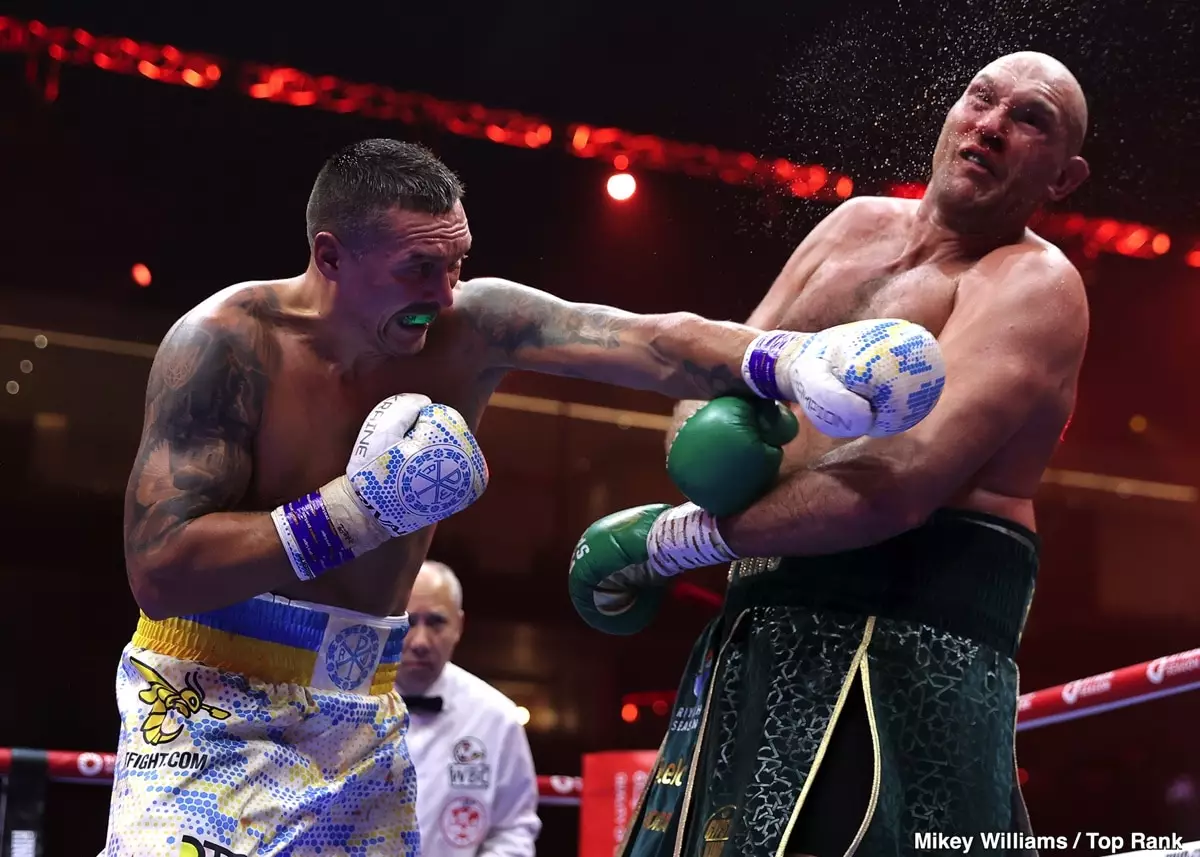Tyson Fury’s ongoing denial regarding his earlier defeat to Oleksandr Usyk is a striking representation of a fighter clinging to a tarnished legacy. His steadfast belief that he was wronged by the judges in their bout last May reflects an unwillingness to confront reality, a psychological barrier that usually accompanies an athlete’s decline. Fury has famously proclaimed he’s watched their match a staggering 1,000 times, yet he remains convinced that he could have emerged victorious had it not been for the pivotal ninth round—wherein a knockdown event almost sealed his fate. As Fury prepares for their highly anticipated rematch on December 21st in Riyadh, Saudi Arabia, it raises the question: how will his credibility hold up if he finds himself defeated once more?
At 36 years old, Fury exists in a peculiar timeline within his boxing career. While some claim age is merely a number, the truth is, time does not favor athletes, especially those who rely on agility and speed—the very attributes that define heavyweight boxing. In Fury’s case, the effects of age might be compounded by the increasingly questionable choices in his recent fights. Critics agree that Fury has enjoyed a comfortable ride to the top largely due to favorable matchmaking and controversial decision wins, such as the one against Francis Ngannou—another bout many felt he lost. This leniency has obscured the fact that Fury could be approaching a 0-2 record in his last two major fights, merely putting a band-aid on substantial cracks in his winning facade.
Furthermore, it appears that Fury’s physical condition has waned since his prime. Many observers note that his physique has changed dramatically, with the fighter seemingly indulging in a luxurious lifestyle that includes calorie-rich foods. While enjoying the fruits of his labor is understandable, whether this lifestyle has negatively impacted his performance in the ring is a valid point for scrutiny.
Fury’s refusal to acknowledge his losses suggests a deeper problem concerning his mental fortitude. Athletes, particularly those thriving in combat sports, require a firm understanding of their capabilities—both strengths and weaknesses. Denial can often be the precursor to poor decision-making. If Fury continues to shun reality and falsely lauds his abilities, it might impair his readiness for the rematch against Usyk. Without an accurate assessment of where he stands as a fighter, his strategy may falter against a skilled opponent who has demonstrated superiority.
His statements about possessing unwavering confidence—”I didn’t feel like I lost the fight” and “that was the telling factor for some of the judges”—represent a defensive mechanism against the bruising reality of losing to an opponent who seemed to have an arsenal of skill and strategy he could not overcome. It’s perilous for a fighter to enter the ring at odds with the truth of his own performance.
As Fury steps into the ring once more against Oleksandr Usyk, it is essential to analyze why Usyk holds the mantle of favorite. With a record of 22 wins, 14 by knockout, Usyk dominates in more ways than one; he has showcased a versatility and acumen that outweighs Fury’s past semblance of invincibility. In their last encounter, Usyk’s tactical advantage was evident; he controlled the ring with a combination of footwork and power—striking an unflinching confidence in the process.
The prospect of facing a fighter with such accolades should instill a pragmatic approach in Fury. While he insists that Usyk “didn’t surprise” him, such bravado appears to serve a dual purpose; not only does he seek to maintain an image of superiority, but it also masks the underlying fear of vulnerability that all champions face.
With the rematch looming, one must ponder the greater implications of this fight on Fury’s career. Should he experience yet another loss, it risks catapulting him into a downward spiral filled with questions regarding his future in boxing. Acknowledging his past defeats and recalibrating his approach could lend Fury the clarity necessary to combat the legends of the sport and perhaps reinvigorate his ambitions.
It seems the time has come for Tyson Fury to confront the reality of his circumstances. The boxing world is unforgiving; those who refuse to adapt will invariably find themselves ousted by younger, more dynamic combatants. As he stands at this critical juncture, it remains to be seen whether he can transcend the narrative of delusion and embrace the authentic challenges of his craft. Only then can he reclaim his rightful place in the boxing arena, instead of merely floating on the memories of his past glories.

